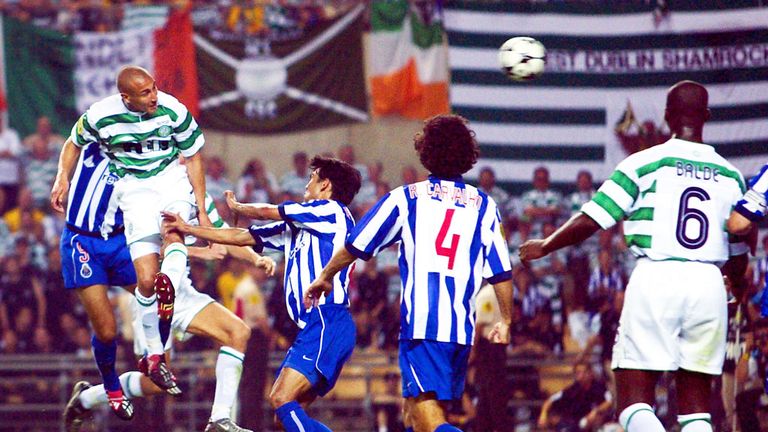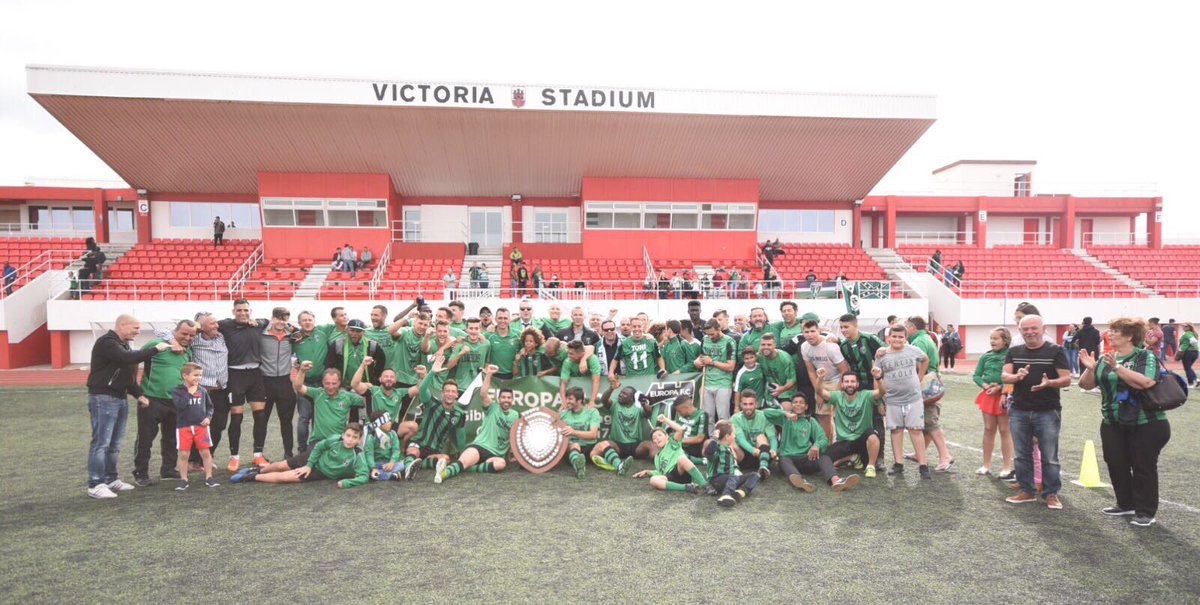 |
| Rangers exit Europe at the first hurdle Source: Imago |
However last night Rangers had their 1-0 lead from the first leg overturned by the plucky hosts who secured a memorable 2-0 win on the night to eliminate Rangers. It ensured progress through a round of European football for the first time in their history where they will meet Cypriots AEL Limassol, baring an even bigger shock from St Joseph's of Gibraltar on Thursday afternoon.
Such a result became big news with the press, fans on social media and pundits all reacting to Rangers' quick, early exit from a competition manager Pedro Caixinha had targeted progress in. This wasn't a case of Rangers coming up unstuck against a side playing in-season as Niederkorn hadn't played since the conclusion of their domestic campaign at the end of May. Their opponents before the tie had only ever scored once in twelve previous European games. Even the programme notes from Progrés Niederkorn were dismissive of their chances to cause a shock. However the players in the build up had been talking positively of their chances of knocking out their illustrious visitors.
Knock them out they did and it has got people once more, me included, talking about what is the problem with Scottish football, what is the standard and how low can you go?. The truth is it has been a miserable last week for Scottish clubs in Europe. Last week St Johnstone, who finished 4th to qualify were beaten at home by Lithuanians FK Trakai. The pressure is on St Johnstone tomorrow to rescue that tie or else Scotland will be left with just two sides in Europe after the first hurdle.
Scottish sides have struggled badly the last few years in Europe as a whole. Celtic were beaten in the first leg of last year's second qualifying round by Lincoln Red Imps from Gibraltar in what was considered the worst result by a Scottish club in European football but they recovered that shock to progress. Hearts however were beaten by Maltese side Birkirkara that showed beyond Celtic, Scottish football really does have a serious lack of quality. Those two examples only coming from last year. Should we go back further we can find Hibernian's shambolic 9-0 aggregate defeat to Malmö in 2013, the heaviest defeat ever for a Scottish team in European competition.
The reality is that Celtic in the past few years have been single handedly dragging the country coefficient up while everybody else bows out at the earliest opportunity. Aberdeen have been slowly stepping up to try and reverse the trend of Scottish clubs failing in Europe in the past few years. Their recent history in the Europa league has seen victories over FC Groningen and Rijeka alongside a respectable showing against Real Sociedad. However in each of the past three season's their involvement has ended at the third qualifying round stage, respectable compared to other sides.
Look at Scottish clubs in Europe nowadays and it is hard to believe that in the 2000s Scotland reached two European finals. Yes in the 2000s when the financial gap between the smaller nations and the big five or four really began to grow enormously. Celtic reached the UEFA cup final in 2003 taking Porto to extra-time in a thrilling final before losing out late. Five years later Rangers took on Zenit St Petersburg just as the Russians began to announce themselves as cash rich ambitious force to the east and although Rangers lost 2-0 they gave a good account of themselves despite playing a crazy amount of fixtures in the build up.
Such runs to the final saw Scotland allowed two clubs into the champions league and the decade saw both Celtic and Rangers reach the last 16 of that competition. It was a pretty good decade and towards the end even Aberdeen reached the last 32 of UEFA cup after coming through a group featuring Panathinaikos, Atlético Madrid, Lokomotiv Moskva and FC København. In the last 32 they bowed out to Bayern Munich after losing the second leg heavily following a 2-2 draw in Pittodrie.
Scotland's coefficient ranking in the decade shows just how well they were faring. They ranked as high as 9th in 2003 and remain consistently around that level for much of the decade ending it in 16th.
Decline
The current decline began to rear its head just a few short weeks after Rangers' UEFA cup final defeat to Zenit in 2008. They faced Lithuanian side FBK Kaunas in a champions league qualifier and were surprisingly eliminated with no European football for the rest of the season.
Since then its been a rough decade. Celtic would go from 2008 until 2012 without reaching the champions league group stage and the financial rewards that go with that. Rangers did have a run to the last 16 of the Europa league in 2010-11 but that was as good as it got for them. They would be eliminated in 2011-12 by Maribor of Slovenia in the play-off round.
The likes of Hearts, Hibernian, St Johnstone, Dundee United and Inverness Caledonian Thistle have all failed to progress beyond two rounds of European football this decade which has contributed to the continued Scottish slide down the coefficient table. From the high of 9th in 2003, Scotland's slump in the 2010s currently sees the league ranked 26th out of fifty-five UEFA members.
What can be done?
There is no magic formula to improve Scottish results in European competition. One suggestion that has been mentioned by Celtic manager Brendan Rogers is a calendar switch from winter to summer. Such a switch would mean that Scottish teams are at least match sharp going into these qualifiers, an advantage that can't be stressed enough. A calendar switch however wouldn't be popular, it worked in Ireland because there was only a premier and first division to move, in Scotland it would require a whole pyramid to be shifted. Do the lower league teams really fancy playing the season through the summer?
Money is the big issue and that comes with success so its a vicious cycle that Scottish clubs somehow have to break free of to improve. Perhaps losing the superiority complex would be a start. There was an element of under estimating the opponent in Rangers' humiliation this week and to most observers Rangers are light years away from where they once were to be underestimating any opponent. Other Scottish clubs haven't shown anything in recent years to be assuming they'll be getting through rounds in Europe. For the most part the opening qualifying rounds in Europe aren't against the big hitters, St Johnstone and Rangers for example in the first qualifying round were seeded (St Johnstone were seeded for the second as well) so avoided any of the decent sides that are drafted in at this stage of the competition.
However it seems with Scottish football the status quo must be retained and the lack of enthusiasm for change from the authorities ensures that we might be back here asking the same questions of Scottish football in a year or two again.
The likes of Hearts, Hibernian, St Johnstone, Dundee United and Inverness Caledonian Thistle have all failed to progress beyond two rounds of European football this decade which has contributed to the continued Scottish slide down the coefficient table. From the high of 9th in 2003, Scotland's slump in the 2010s currently sees the league ranked 26th out of fifty-five UEFA members.
What can be done?
There is no magic formula to improve Scottish results in European competition. One suggestion that has been mentioned by Celtic manager Brendan Rogers is a calendar switch from winter to summer. Such a switch would mean that Scottish teams are at least match sharp going into these qualifiers, an advantage that can't be stressed enough. A calendar switch however wouldn't be popular, it worked in Ireland because there was only a premier and first division to move, in Scotland it would require a whole pyramid to be shifted. Do the lower league teams really fancy playing the season through the summer?
Money is the big issue and that comes with success so its a vicious cycle that Scottish clubs somehow have to break free of to improve. Perhaps losing the superiority complex would be a start. There was an element of under estimating the opponent in Rangers' humiliation this week and to most observers Rangers are light years away from where they once were to be underestimating any opponent. Other Scottish clubs haven't shown anything in recent years to be assuming they'll be getting through rounds in Europe. For the most part the opening qualifying rounds in Europe aren't against the big hitters, St Johnstone and Rangers for example in the first qualifying round were seeded (St Johnstone were seeded for the second as well) so avoided any of the decent sides that are drafted in at this stage of the competition.
However it seems with Scottish football the status quo must be retained and the lack of enthusiasm for change from the authorities ensures that we might be back here asking the same questions of Scottish football in a year or two again.






